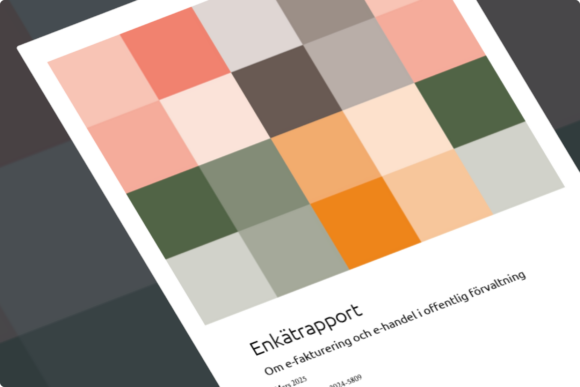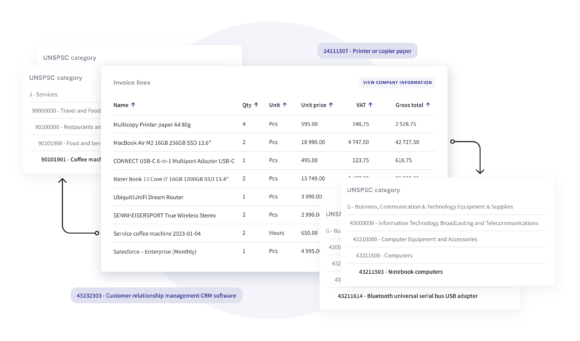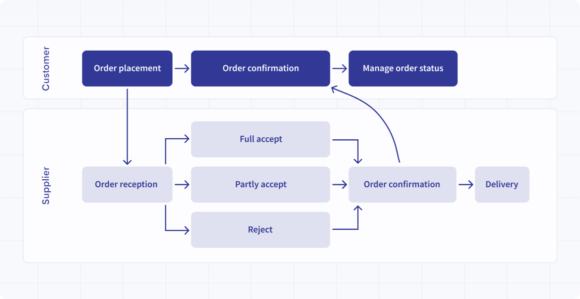Transactions, technologies and trends
Category: Procurement
Procurement
Procurement is the strategic process by which organizations acquire goods, services, or raw materials for their operations and achieve their objectives. It involves systematically identifying, selecting, negotiating, and managing suppliers to ensure optimal quality, cost-efficiency, and timely availability of resources.
Core elements of the procurement process
- Sourcing strategy: Organizations implement sourcing strategies that guide how and where to obtain necessary goods and services. These strategies consider factors such as cost, quality, market conditions, supplier relationships, and organizational objectives.
- Supplier selection: Suppliers are evaluated and chosen based on criteria including pricing, reliability, quality of goods or services, production capacity, and alignment with organizational values and goals.
- Negotiation: Procurement professionals negotiate with suppliers to establish terms such as pricing, delivery schedules, payment conditions, and service levels that meet the needs of both parties.
- Contract management: Formal agreements, often contracts, detail the terms of supplier relationships, including performance standards, dispute resolution mechanisms, and expectations.
- Order placement: Purchase orders are issued to suppliers, specifying the details of the order, including product descriptions, quantities, prices, and delivery schedules.
- Receipt and inspection: Upon delivery, goods and services are inspected to confirm compliance with the agreed specifications and quality standards.
- Invoice processing: Supplier invoices are matched with purchase orders and delivery receipts to verify accuracy, ensuring proper payment and avoiding errors such as overbilling.
- Supplier relationship management: Ongoing engagement with suppliers is vital for ensuring long-term success. Effective communication, regular feedback, and collaborative efforts foster strong partnerships and mutual value creation.
- Risk management: Procurement teams assess and address supply chain risks, including disruptions, market fluctuations, geopolitical factors, and regulatory changes, to safeguard operational continuity.
- Ethical and sustainable sourcing: Increasingly, organizations prioritize ethical and sustainable procurement practices, evaluating suppliers based on their environmental, social, and governance (ESG) performance.
Peppol in e-procurement
Peppol, originally developed in Europe, plays a growing role in modern e-procurement by providing a standardized framework for the electronic exchange of business documents. Peppol enables organizations to send and receive purchase orders, invoices, and other procurement-related documents through a secure and interoperable network.
Key benefits of Peppol in e-procurement include:
- Standardization: Peppol ensures that all documents adhere to a uniform format, facilitating seamless communication between trading partners regardless of their internal systems.
- Efficiency: By automating document exchange, Peppol reduces manual processing, accelerates transaction cycles, and minimizes errors.
- Compliance: Many regulatory authorities recognize Peppol as a valid platform for meeting e-procurement standards, helping organizations comply with tax and reporting requirements.
- Global reach: While initially focused on Europe, Peppol’s adoption has expanded globally, making it a critical tool for international trade and procurement.
Peppol simplifies procurement processes, reduces administrative burdens, and enhances transparency, making it a key enabler of digital transformation in procurement.
The role of technology in procurement
Modern procurement processes often integrate advanced technologies such as e-procurement platforms, analytics tools, and automation software. These systems streamline operations, provide real-time insights, enhance decision-making, and enable businesses to monitor supplier performance effectively.
By optimizing procurement practices, organizations can control costs, mitigate risks, improve the quality of goods and services, and gain a competitive advantage in their respective markets.
Explore our articles for insights into optimizing procurement processes and strategies.

The adoption of e-invoicing and e-procurement is accelerating across public administration in Europe. A recent Swedish study offers insights among municipalities and central government agencies.

Integrated Digital Trade (IDT) refers to the seamless exchange of goods, services, and information between companies through digital platforms and technologies.

To move forward with digital transformation in e-procurement, enhancing the quality of financial data stands as a cornerstone for achieving efficiency through speed, automation, and insightful analytics. Here’s why you need structured data in your e-procurement processes.

The United Nations Standard Products and Services Code (UNSPSC) is a globally recognized classification system for products and services. It provides a standardized way of categorizing various goods and services across different industries.

Punchout technology has the potential to radically increase efficiencies in sales, purchase, and procurement processes for business-to-business transactions. Here’s how to use punchout technologies in B2B procurement.
